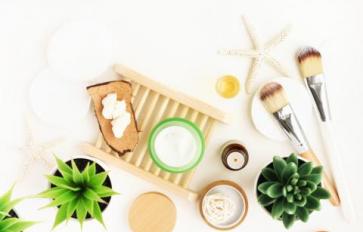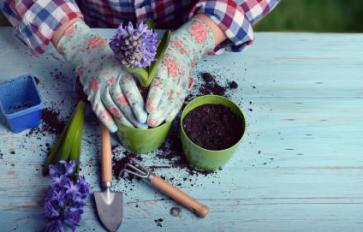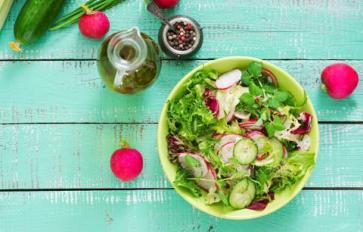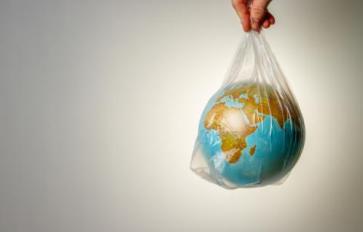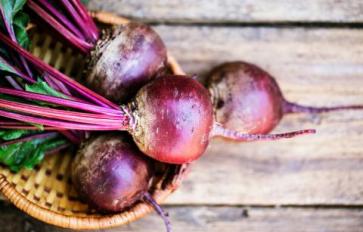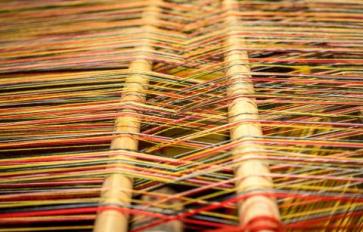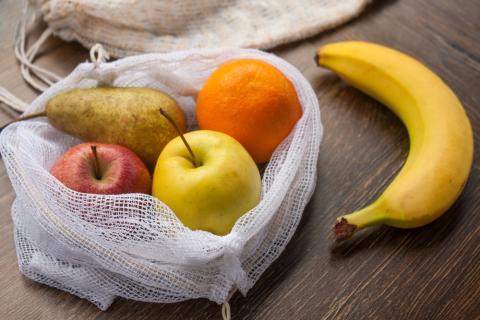
July is here, and that means so is Plastic Free July! This campaign started in 2011 to get people thinking about plastic pollution and ways to solve it. The goal is to avoid disposable plastic all throughout the month of July (and hopefully every day afterward). Want to participate? Here's how to get started.
First, make the pledge
Before you can begin making any big changes, start by registering for Plastic Free July and making the pledge. It's not hard – you just have to fill out some basic information about yourself and choose your dedication level. You have the choice to patriciate for a day, one week, all of July, or even from now on! Also, you can choose exactly what to give up, such as single-use plastic packaging, takeaway items (like bags, bottles, straws and coffee cups), or go completely plastic-free altogether. The commitment level is totally up to you. And who knows? By the end of it, you may find yourself wanting to continue onward in a zero waste quest to reducing plastic consumption. Whatever you decide to do will make a huge difference.
Where to get plastic-free items
Remember to use whatever you already have at home before going out and buying new products! You can find a slew of plastic free products at your local stores or online that will help you along you journey. You also can find some great deals at local thrift stores (search your area for some). Vintage or used items are better for the environment because no new resources were wasted to make them, so whenever you can, buy second hand. Without further ado, here are some tips to help you get started.
Ditch plastic bags
Plastic bags are so annoying. I see them all over the place, polluting our world. From our oceans to the middle of the road, plastic bags have a habit of getting loose and entering our environment. When they do, they're either eaten by unsuspecting animals (which can cause a slow and painful death of starvation) or leech toxins into our environment. To give you an idea of how bag plastic bags are for the environment, each year an estimated 500 billion to 1 trillion plastic bags are consumed worldwide. That's ridiculous considering billions end up as litter each year and more are constantly being made (wasting energy and precious resources). Instead of contributing to this cycle, skip the bag! When you go to get groceries, opt for a reusable bag instead. A lot of times you can buy one right in the cashier aisle for less than $2. You could also try canvas tote bags which will biodegrade when you're done using them at the end of their life. Whatever kind of reusable bag you invest in, I recommend getting at least three to five in order to have enough for grocery shopping.
Say no to straws
Straws are super wasteful, and they hurt the planet. Don't believe me? Americans alone use 500 million drinking straws per day. And no, they're not recyclable. These enter our waterways and wind up hurting our wildlife (have you seen the video where the turtle has a straw stuck up its nose?). Please, if you do nothing else this Plastic Free July, make an effort to say no to straws. Don't buy them anymore. At a restaurant, order your drink without a straw by simply saying "[drink of your choice] with no straw". If you must use a straw, invest in reusable ones. There are so many to choose from. I personally carry three different kinds: Stainless steel, glass, and bamboo. All of them are great, but each have their differences. Stainless steel is easy to recycle, very durable, dishwasher safe, and has a modern, sleek look. Use stainless steel straws with caution on hot drinks though. Bamboo straws are great for hot or cold drinks, compostable, great for kids and parties, naturally antibacterial, and dishwasher safe. They're also surprisingly durable and can be reused over and over again. They do have a slight texture and taste difference, but it makes drinking out of them fun and unique. Glass straws are great for hot or cold drinks too, recyclable, clear (so they're easy to clean), customizable, and dishwasher safe. Out of all the reusable straws I have, my glass one is by far the prettiest and I get compliments on it all the time. If you must resort to disposable straws, go for paper straws since they biodegrade. Just make sure you add them to the compost heap when you're done!
Refuse plastic cutlery
Whenever I walk into the mall, I'm bombarded by all the plastic cutlery in the food court. It honestly makes me sick. Plastic cutlery is hard to recycle in most states and often winds up right in the trash. It's either destined for landfill or becomes litter and pollutes our environment. I cannot tell you how many plastic utensils I've found on beaches and in parks. It's disgusting. Instead of reaching for a plastic spoon, fork or knife, utilize what you already have in your kitchen: Reusable cutlery! I'm sure you have a nice set of stainless steel utensils in a drawer or two. Use that at home, at parties you host, and while out and about. I grab a fork, spoon and knife every time I head out of the house just in case I need them. I make sure to wrap them in my multi-utensil pack which I tie shut. It keeps my utensils secure when I plop them into my bag, and I don't have to worry about hurting myself whenever I dig through my purse. You can also just w wrap your utensils in a reusable napkin and secure it with a ribbon or hair tie. Totally up to you, but that is a cheaper option. If you prefer not carrying around stainless steel utensils, look into getting some wooden or bamboo cutlery. Not only are these more lightweight and durable, but they're also compostable at the end of their life.
Replace plastic bottles
I don't remember the last time I drank from a plastic water bottle, or any plastic bottle for that matter. That's a good thing, considering 1,500 water bottles are consumed every second. That doesn't even take into account the wastefulness of soft drinks packaged in plastic. While you certainly can recycle water bottles, it's important to remember there are people who don't, and these are the ones that end up in landfills, waterways, and natural areas. We must do our best to stop this from happening. To reduce plastic bottle consumption, invest in a reusable water bottle. Initially it will cost you more money but it will actually save you money in the long run. You can also get a glass water bottle with a silicone sleeve! If you're worried about drinking tap water, I suggest getting a charcoal water filter – charcoal water filters are not only plastic free and compostable, but also remove loads of impurities from water.
Get rid of coffee cups
If you love to drink coffee or tea on the go, chances are you've encountered tons of plastic cups. You might be thinking: Wait, I get my coffee in a paper cup, how is that plastic? Two things: The tops of those paper cups (AKA the lids) are plastic, and the inside of the paper cup is lined with plastic. That's how coffee cups are able to hold the hot liquid to begin with. Unfortunately, this plastic lining makes coffee cups unrecyclable. Starbucks alone goes through 4 billion to go cups annually (though they are ditching plastic straws by 2020, which is a step in the right direction). Forget to-go cups and bring your own travel mug. I have one that's stainless steel with a cute design on the front. You can get them online or even in your local coffeeshop (yes, they do sell reusable cups!). A travel mug will help you cut down on a lot of waste. Another way to avoid wasteful cups is to go to local coffee shops and ask for your coffee to stay. Chances are, they'll brew you the best darn cup of Joe (in a real mug too). I'm a tea person, and even I've done this at my local coffee shop. Sometimes it's nice to just slow down and drink a delicious chai tea from a reusable cup.
Forget plastic produce bags
Aside from plastic grocery bags, plastic produce bags are equally bad. Whenever you go to the grocery store, they're all over the place: You have to rip them off a roll and place fresh produce in them. They're single use only. And they create so much waste. The ironic part is that plastic leeches toxins into your food, so why would you want to wrap fresh, unpackaged produce in plastic bags anyway? I know I wouldn't. Instead, I use reusable produce bags. There's a bunch of different styles to choose from. You can get mesh produce bags made from cotton or synthetic fibers. I will say I have a mix of cotton and synthetic produce bags, simply because synthetic produce bags are cheaper. Whenever I can though, I go for the cotton because they're compostable at the end of their lives. Both kinds are great though and can be reused indefinitely. You can also hand or machine wash them when they're dirty! They're even good to use when bulk food shopping (but don't use them for anything too fine like flour or sugar – just bulkier dried goods like beans, lentils and kernels).
For more tips and tricks on avoiding plastic well beyond the month of July, be sure to download my free e-book 10 Ways to Reduce Trash.


